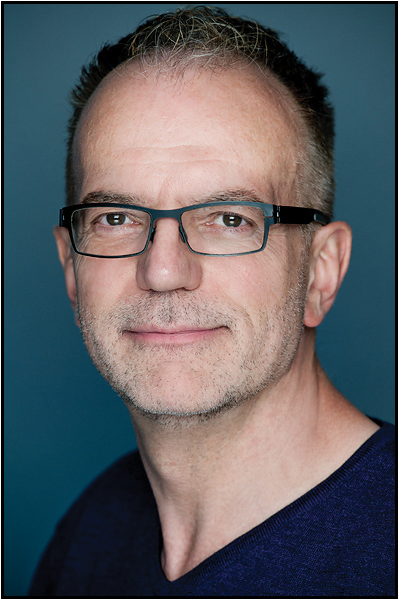Why Am I Angry?
And What Can I Do About It?
by Gary McClain, PhD
You’ve been here before.
A loved one, a healthcare professional, a friend, even a stranger, says something, does something, looks at you a certain way and … BAM! You’re off to the races. Wow, are you ever angry! Your anger might take the form of blowing up, or walking away, or sitting and seething.
Your anger was set off so quickly. And, now, you might be asking yourself how that happened. Chances are, anyone who witnessed your anger may be asking the same question.
As a therapist, I have a lot of clients who are cancer survivors. Often, they talk to me about their day-to-day challenges. They describe the side effects of their treatment regimen. They talk about having to follow diets or make unwanted changes in their routines, about finances and stressors at home. They open up about the uncertainty cancer creates and the loss of control over their lives. Then they describe the range of feelings these struggles illicit. Sadness. Fear. Frustration. And, yes, anger. No doubt you experience these types of feelings too.
But let me ask you a question about anger: When you feel angry, can you identify what’s really making you so mad? Here’s another question: Is it possible you aren’t truly angry, but are experiencing another emotion that is just so hard to acknowledge that you instead automatically go to the angry place?
Another Perspective on Anger
As you hold the above two questions in mind, let’s consider another perspective on anger.
Getting angry is part of being human.
Anger itself is a primary emotion. When someone treats you or someone you care about in a disrespectful or aggressive manner, it’s only human nature to get mad. Nature has wired us to grow angry. Where the complications arise is with what we choose to do with all that anger. Notice the emphasis on choose!
Anger is also what therapists call a covering emotion.
In other words, when we feel angry, our anger is usually a cover-up for an underlying emotion, like fear, disappointment, or sadness.
If we are inclined to avoid acknowledging or experiencing that emotion, we may find ourselves veering into anger instead. This is because anger may feel more comfortable in the moment. It may be more acceptable to us than the feelings we’re covering up with our anger. For example, have you ever felt deeply sad or disappointed and then found yourself on the verge of blowing up at someone? If so, you were subconsciously using anger to cover up your sadness or disappointment.
When we feel angry, our anger is usually a cover-up for an underlying emotion, like fear, disappointment, or sadness.
Taking Control of Your Anger
Now, you may be asking, how does all this help me manage my anger? Here are some steps you can take, starting today, to help get your anger under control.
Practice self-awareness.
It’s easy to go from zero to sixty when something presses your anger button. How do you stop that from happening? The key is to be aware of yourself, every moment of the day. That means knowing when you might be feeling vulnerable to emotions that can lead to anger.
Start the day with an inventory of your emotions.
Ask yourself: How am I feeling today? Glad? Great! Sad? Scared? Frustrated? Just plain old mad? Think about what’s causing you to feel that way. Most likely, you can identify thoughts or recent events that are bringing up those feelings. If you’re angry, ask yourself why. If you can’t come up with an answer, cast a wider net for other feelings that may be behind that anger.
Beware of helplessness.
Often, certain thoughts and events cause us difficulty because they remind us that so much of life is out of our control.
Nobody knows this better than someone who is living with cancer. Keep in mind: Anger feels powerful, at least in the moment. Sadness, disappointment, and fear may make us feel helpless.
And humans don’t like to feel helpless. That’s why we sometimes hide these vulnerable emotions beneath anger.
Take note of what you can and can’t control.
Taking a moment to acknowledge your level of control, or lack thereof, can help you maintain your perspective. Is it time to recite the Serenity Prayer and accept what you cannot change? Or is it time to take action to address an issue you have been pushing aside?
It’s easy to go from zero to sixty when something presses your anger button. How do you stop that from happening?
Figure out what you need to do to stay in a mentally healthy place.
Again, be proactive. If you start the day with feelings that are hard to sit with, like sadness or frustration or fear, then consider what you can do to help yourself cope with these emotions. Is there someone you can call for a pep talk?
Do you need to take time for a walk? Maybe some meditation? A break with some calming music? Or a maybe a religious or spiritual practice? I always encourage my clients to assemble a toolbox of coping skills they can pull from as needed.
When you feel angry, take a step back.
Do whatever it takes to engage your rational mind, whether it’s taking a few deep breaths, leaving the room for a moment to regroup, or whatever else you can do to help you think before you react. Review that morning inventory of your feelings. Get back in touch with what’s pushing your anger button. This will help you get a handle on that urge to blow up.
Be ready to apologize.
You’re dealing with a lot, and you’re doing the best you can. As are your loved ones. If your anger gets the best of you, admit it and offer an apology. Resolve to do better next time. And don’t be afraid to ask for help.
Some Final Words About Anger
Living with cancer brings up all kinds of emotions. Accept your feelings – all of them – and let yourself be human. Familiarize yourself with the range of your emotions. Sure, feelings can be scary. But allowing them to see the light of day prevents them from controlling you. Give yourself a break, and you’ll be that much more able to give others a break too.

Dr. Gary McClain is a therapist, patient advocate, and author living in New York, NY. He specializes in working with people diagnosed with chronic and catastrophic medical conditions, their caregivers, and professionals. You can learn more about Dr. McClain and find resources to help you deal with the emotional impact of your diagnosis at his website, JustGotDiagnosed.com.
This article was published in Coping® with Cancer magazine, September/October 2020.


